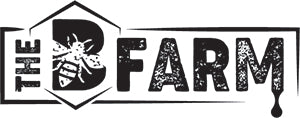The queen bee is the beating heart of any hive. Read along to learn about the role queen bees play in a honey bee colony. Here you will discover a new way to appreciate this phenomenon of nature.
Mating
The life cycle of a queen bee is full of purpose. Once the queen emerges from her cell, she will take a few days to mature. Then, with several worker bees to accompany her, the queen will fly a mile or more away from her hive so she can begin mating. The distance from the hive helps make sure she does not mate with drones, or male bees, too closely related to her.
We still do not know for certain how queen bees and drones know to meet in the same spot, but they do meet in the “drone congregation area.” Over several days, a queen bee will mate with 10 to 20 drones, who will all die immediately after the encounter. Once her spermatheca, a special structure inside her abdomen, is full of semen, she will return to the colony.
Laying Eggs
Now begins the role queen bees play in a honey bee colony for which they are most known. Never again will the queen have to mate, but she will spend the rest of her life laying thousands of eggs.
While the queen bee lays eggs, the worker bees develop the honeycomb cells where she will deposit the eggs. The queen analyzes each cell before she lays her egg. If the cell is the size of a worker bee, she will lay a fertilized egg into that cell, from which a female worker bee will later hatch. If the cell will fit a larger male bee, the queen will lay an unfertilized egg, later developing into a drone. The main differences between queen bees, drones, and worker bees come down to the roles they were born to play.
Spreading Pheromones
A queen can communicate and partially control her colony by spreading pheromones. Her most common pheromone is called the Queen Mandibular Pheromone (QMP), which essentially tells every bee that the “queen is fine.” QMP also stops worker bees from developing ovaries, forever keeping the queen as the only honey bee that can reproduce.
Honey bees are endlessly fascinating creatures. If you would ever consider starting your hive, check out The B Farm’s bee nucs for sale in Cattaraugus, NY. Contact us at 978-667-2337 if you need assistance or have questions!
